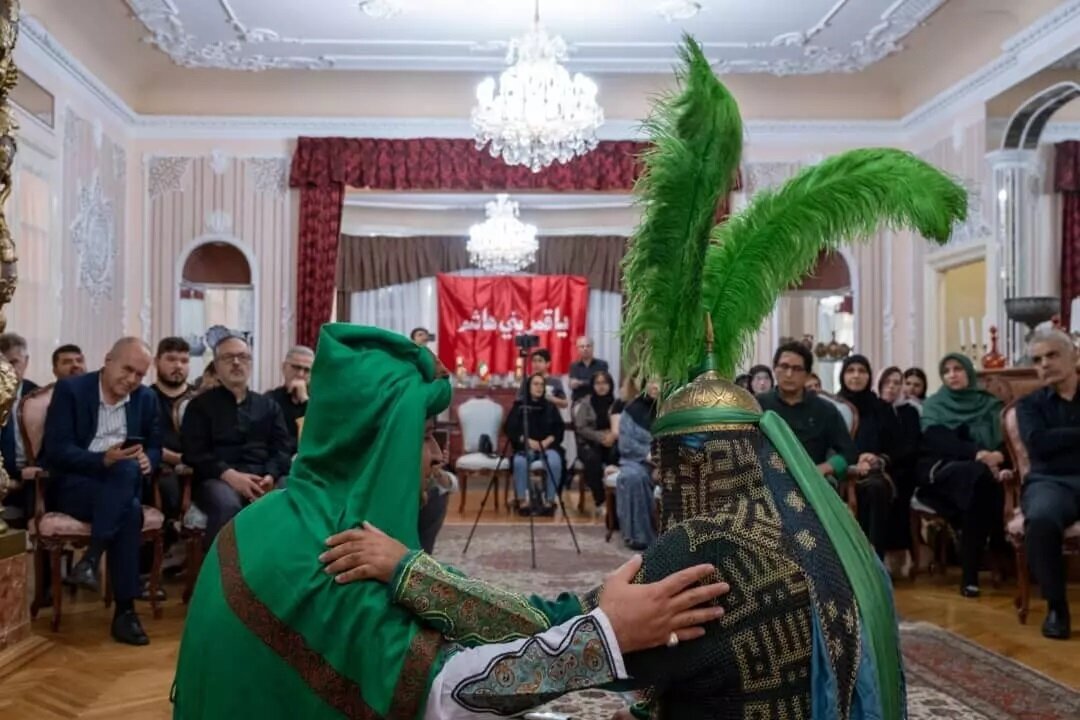Tazieh performance goes on stage in Hungary

TEHRAN- For the first time, a tazieh performance on the martyrdom of Imam Hussein (AS) was held in Budapest, the capital of Hungary, coinciding with the month of Muharram and mourning ceremonies for the martyrdom of Imam Hussein (AS).
The event was organized by the Iranian Embassy in Budapest and was held by the Imam-e Rauf group at two locations, a church in the city center and the Iranian Embassy itself last week, Mehr reported on Saturday.
The performances were attended by a large number of Hungary-based Iranians, as well as Muslims from countries such as Iraq, Pakistan, Afghanistan, India, Bangladesh, and Hungarians interested in Iranian culture and art, the report added.
The performances were produced by Amir Mohammad Davoodipour and directed by Hassan Basiri, and featured artists such as Seyyed Ali Sadat Razavi, Majid Khosravan, Mehdi Sayyadi, Seyyed Mortaza Miresmaeili, Mohammad Reza Qorban Asgari, Navid Asjodi and Amir Soleimani Moqaddam.
The event was a significant milestone in the history of tazieh performances in Europe, as it was held for the first time at a Christian church in Budapest. The event received widespread attention and admiration from the audience, who praised the beauty and richness of Iranian culture.
The presence of some Hungarian cultural and artistic figures at the event was also notable, indicating their appreciation for this rich Iranian tradition. The event was a testament to the universal message of peace and friendship that Imam Hussein (AS) and the Ashura uprising convey to all humanity across cultures and religions.
The Iranian passion play tazieh was registered on the UNESCO List of the Intangible Cultural Heritage of Humanity in November 2010.
Tazieh represents religious events, historical and mythical stories and folk tales. Each performance has the four components of poetry, music, song and motion.
However, stories about the uprising of Imam Hussein (AS) and his companions against the oppressive Umayyad dynasty in 680 CE are more highly regarded by tazieh troupes and audiences.
Performers are always male, and female roles are played by men, most of whom are amateurs who gain their living through other means but perform for spiritual rewards.
It is a kind of drama that depicts the event of Ashura and is performed in Mahur, Chargah, and Shur Baghdad radifs of Iranian music.
It is based on the Ashura culture and the brave war and martyrdom of Imam Hussein (AS). It is a religious play dated back to 9th-century dynamites and Buyids. However, Tazieh performance began during the Safavid era (1501-1736) and flourished during the Qajar era.
SAB/
